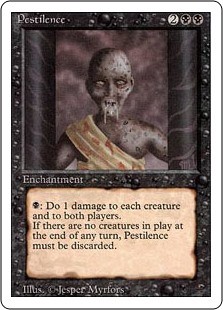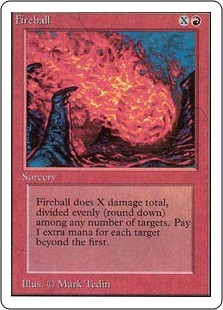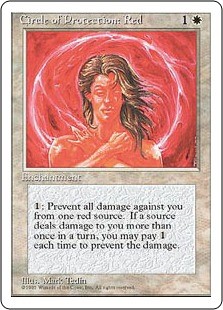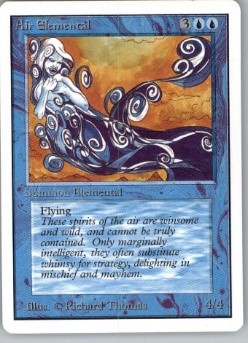There is something about strategic/development games that I absolutely love. From choosing locations to acquiring pieces, the challenge to design a strategy in a game that evolves is what I enjoy most. If I had to explain what I love about games to my three year old daughter it would be: “Daddy likes planning”.
 Passion for the genre started at an early age. Crossbows and Catapults, Risk, and Axis and Allies were favourite games in childhood that led me to play Warhammer 40K and Epic Space Marine during my early teens. More recently, Settler’s of Catan, Agricola, and Terra Mystica have become some of my favourites. Now I mostly just play Magic: The Gathering. Why?
Passion for the genre started at an early age. Crossbows and Catapults, Risk, and Axis and Allies were favourite games in childhood that led me to play Warhammer 40K and Epic Space Marine during my early teens. More recently, Settler’s of Catan, Agricola, and Terra Mystica have become some of my favourites. Now I mostly just play Magic: The Gathering. Why?
It started back in 1993 when my brother Matt (who was introduced to the game in high-school) suggested we split on a starter pack of Unlimited.
The game was fascinating to us. The art was intense, beautiful, and strange. The rules were a challenge and yet we found them completely rewarding. Like any new game that required effort to learn, we’d play while reading the rules and clarify them in a piecemeal fashion. We shared our first pack of cards by dividing them up based on their colour. I took all the blue and red cards and Matt took all the green and white cards.
Neither of us really wanted the black cards. I thought they were either bad, weird, or gross. Often they were a mixture of all three.

We bought these cards on our way to the Games Workshop at store called The Games People in Gastown, Vancouver. We played a bunch of games with the same cards over and over again. During these first few games a few strategic themes started to crystallize around certain cards.
This is the card I would usually use to win:

This is the card that Matt would usually use to win:

This is the card that would make me lose:

This is the card that would make Matt lose:

This turned out to be my favourite card for a good while:

This was Matt’s favourite card:

Since new packs of cards offered a chance to explore different strategies, we acquired new cards whenever we could. Although supply was short and demand was long, new packs would appear in various convenience and comic stores around Vancouver. At the time, you’d consider yourself lucky to even get a chance to buy a pack!
Over the next couple of years, we gathered cards from Antiquities, Revised, Legends, and The Dark- expansion sets comprised of both new cards and familiar reprints. Packs were usually bought in transit and served as a great way to pass the time on the Seabus or long bus from downtown back to West Van. As my collection grew, so did the scope of the game. New card rules and mechanics were often introduced along with a new set, and it was not long before my love for the game exceeded my brother’s patience for re-explaining the rules and re-reading cards on my behalf, a dynamic that still continues to this day!
Once the basic game was learned, it was easier to focus on strategy development. This meant review of my collection between games and searching for patterns and groups of cards that worked together along same or similar strategic lines. It became possible to read cards and predict how they might work without having to actually play a game to find out (although there is no replacement for direct experience). In this way, strategy-development for playing magic became a card-selection process and the collection represented a reservoir of possibility.
Back and forth I would go between ‘brewing’ (choosing cards to go into a deck) and ‘playing’ (testing the chosen cards as a library). It seemed like I was doing more ‘thinking about magic’ between games than actual playing. My collection offered so many possibilities to design new strategies that my imagination was completely captivated. As well, Magic did not take nearly as long to complete as other strategic-development games and critical feedback on deck ideas (strategy-designs) was provided very promptly (so long as Matt was willing to play). Since I loved the deck-building part of Magic so much, I could effectively play most of the game in Solitaire. And this is how magic became my favourite game.
I kept brewing decks to test against Matt. It got the point where I would have to bother and pester him to play at times, just so I could see the results of my ideas. After all, one can only play Solitaire for so long before needing an actual opponent to get clear results. Matt patiently humoured my brews. He would tire only when I became fixated on a deck-idea that was based on misreading cards or based on crappy cards. Once, I actually built a deck around Psychic Venom and Icy Manipulator and Matt had to sit me down and explain why this idea was awful and he didn’t want to play (or be part of testing the strategy) anymore.
I was (and still am) fascinated by the idea of choosing my own cards before entering a game a magic. I’d compare the process to set-up for a game of Stratego or the placement of armies in Risk (still my favourite play-phases in those games). This is what I originally loved so much about the Games Workshop games. Laying out the terrain and objectives, choosing the scale of armies etc. The combination of being more efficient than any other game for producing feedback, and the fact that the ‘set-up phase ‘could be as long as one wanted, magic became my favourite game to play.
When I reflect on those first cards Matt and I started with, I am struck by how those cards have informed and continue to influence the kind of decks I build and the style of Magic I play. Since magic presents endless possibilities (for developing strategy), and the rules and boundaries remain so robust (they are near impossible to master), I’ve chosen to simply focus on Magic. Perhaps it is selling myself (or the gaming world) short to pick only one game. That said, there is freedom that comes with limitation and I believe this lies at the heart of any good strategy game. To me, Magic simply offers the most freedom within the most rewarding set of limits.
i have those five gems of magic before. coming from my father “Doc. Aga Guidotti. but iv’ed lost it. i don’t know how it works. that’s why i ignore it.
but now. i wanted to be back the five gems of magic or the five elements.
they say if you eat that stone you’ll become powerful. and no one can defeat you.
can i ask something who manage this web.? if you have that kind of element gems of magic.
can i have it?